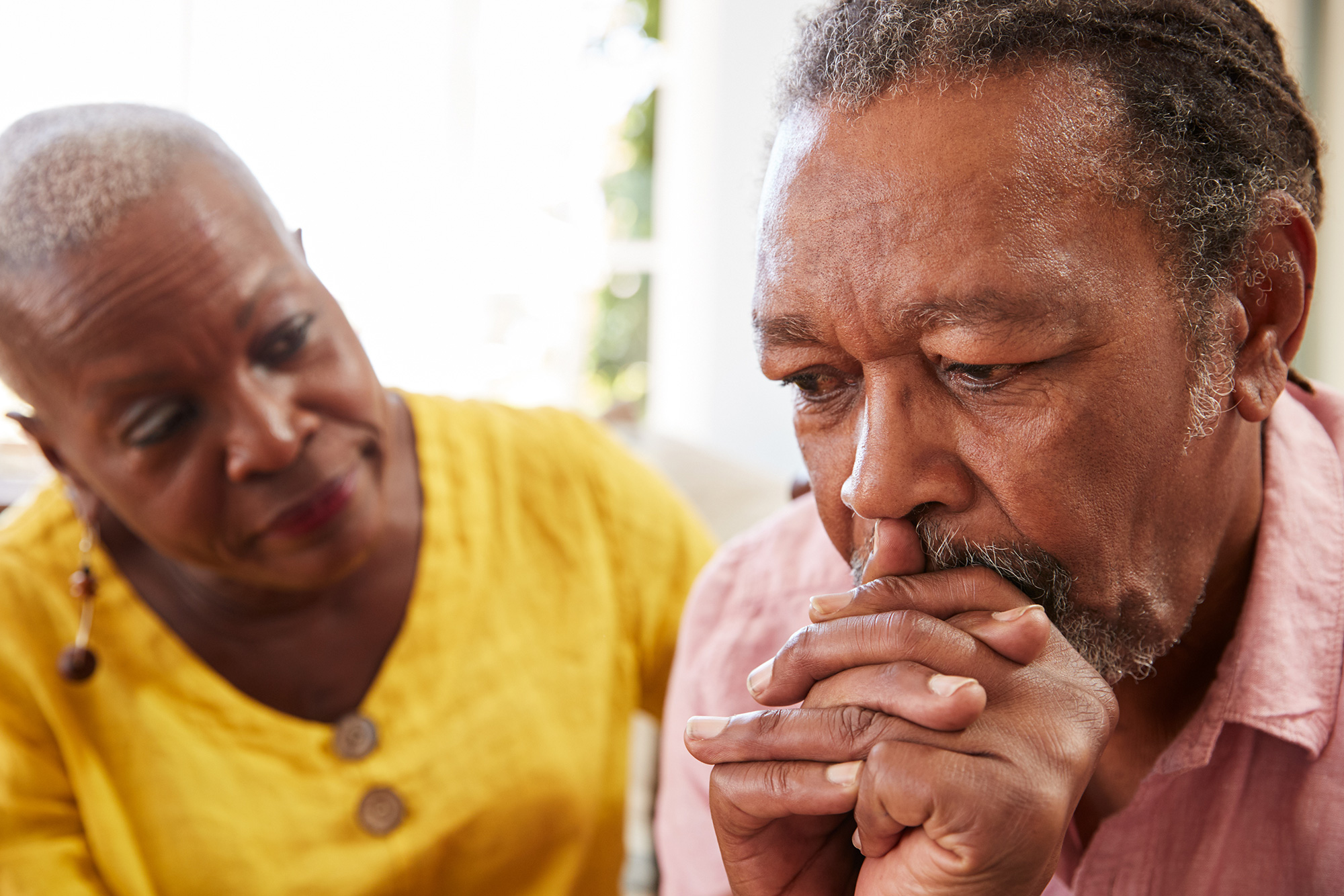Depression is an alarmingly common psychological disorder that affects approximately one in 15 adults in the U.S. annually, with one in six suffering from it during their lifetime. Statistically, women report this condition more often with an average age of onset in the late teens to mid-twenties. The global pandemic is making matters worse with one study indicating triple the number of diagnoses since COVID-19 took hold.
Symptoms of depression can include: sadness and depressed mood, loss of interest and pleasure in previously enjoyed activities, difficulty concentrating, weight changes, sleep disturbance, fatigue, loss of energy, feelings of hopelessness, worthlessness or guilt, and thoughts of death or suicide.
While depression can feel like a solitary experience, it can have serious consequences on relationships, complicating the clinical picture for both partners. People with depression may cast all interactions in a negative light. They can be argumentative or withdrawn. And they can also blame their partners for any difficulties. Their partners can feel hurt, isolated, lonely, helpless, sad and even angry. This cycle can become self-perpetuating and very harmful over time — and can hinder the recovery of the depressed individual.
Because of the seriousness of major depression, you should always obtain a professional evaluation. In severe cases, some people will require antidepressant medication or even hospitalization should the evaluation determine that they’re a risk to themselves or others.
If depression persists untreated, it can lead to resentment, anger and greater emotional distance. The non-depressed partner can feel the burden of taking on neglected household and childrearing responsibilities. If the depressed partner loses a job, then financial stresses can compound the problem. Physical intimacy can be impacted as the depressed partner withdraws emotionally. Ultimately, the marriage could even end in divorce.
Couples therapy can help support both the depressed and the non-depressed partner. In treatment, the therapist works with the couple to untangle the impact of depression on marital satisfaction in comparison to other causes. The depressed partner can better understand how their disorder contributes to problems within the relationship and how treating their depression may not only make them feel better, but also improve the status of the relationship as well.
While not a substitute for the individual treatment of depression, couples therapy can be an effective adjunct treatment that can prevent and treat the collateral damage to the relationship that depression may cause. If you or your partner is experiencing depression, call 407-579-2070 today for your complimentary couples therapy consultation.
Sources
https://www.apa.org/topics/depression
https://www.psychiatry.org/patients-families/depression/what-is-depression
